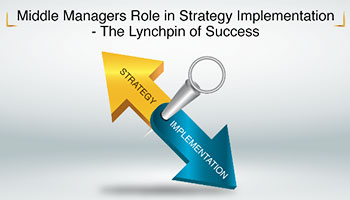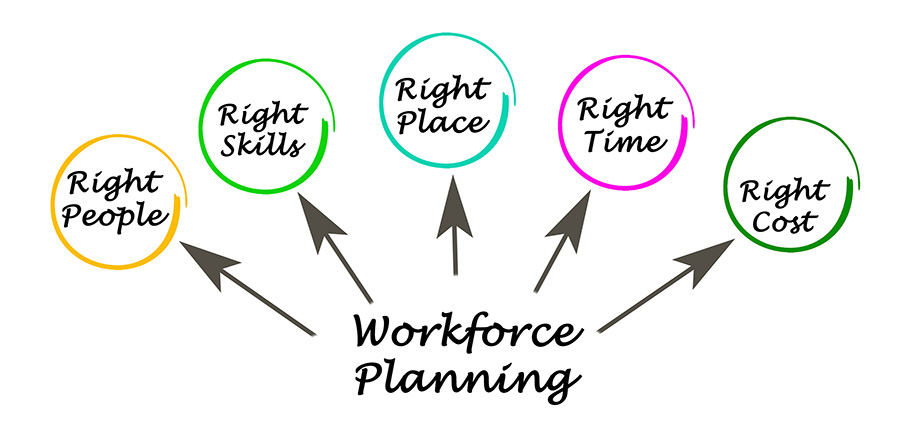The Crucial Role Of Middle Managers In Organizational Success

Table of Contents
Middle Managers as the Bridge Between Leadership and Employees
Middle managers are essential connectors within an organization. Their effectiveness directly influences the successful implementation of strategies and the overall morale of the workforce. This crucial role involves two key aspects: translating strategic goals and facilitating two-way communication.
Translating Strategic Goals into Actionable Tasks
Middle managers are responsible for translating high-level strategic goals set by senior management into specific, actionable tasks for their teams. This involves:
- Clear Communication: Breaking down complex objectives into easily understandable steps for each team member. This requires strong communication skills and the ability to tailor explanations to different audiences.
- Role Clarity: Ensuring everyone understands their role in achieving the overall vision and how their individual contributions fit into the bigger picture. This often involves creating detailed project plans and assigning responsibilities.
- Performance Monitoring: Tracking progress toward goals and providing regular updates to both senior management and team members. This involves utilizing project management tools and techniques.
- Examples: Project planning using Agile methodologies, task delegation via project management software, and performance monitoring through regular check-ins and progress reports.
Facilitating Two-Way Communication
Middle managers serve as a vital communication link, facilitating the flow of information between upper management and their teams. This bidirectional communication is crucial for:
- Information Dissemination: Effectively communicating strategic decisions, policy changes, and company news to their teams, ensuring everyone is informed and aligned.
- Feedback Collection: Gathering employee feedback, suggestions, and concerns, providing valuable insights to senior leadership. This ensures that the voice of the employees is heard.
- Transparency and Trust: Fostering a culture of open communication and transparency, which builds trust and increases employee engagement. Regular team meetings and open-door policies are beneficial.
- Implementing Feedback Mechanisms: Utilizing tools like employee surveys, suggestion boxes, and regular one-on-one meetings to gather and act on feedback.
Middle Managers as Mentors and Developers of Talent
Beyond operational tasks, middle managers play a critical role in developing their teams' potential. This mentorship and talent development significantly impacts long-term organizational success.
Coaching and Mentoring Team Members
Middle managers are instrumental in:
- Talent Identification: Recognizing the strengths and weaknesses of individual team members and providing opportunities for growth and development.
- Mentorship Programs: Implementing or participating in formal mentorship programs to provide guidance and support to junior employees.
- Skill Enhancement: Providing coaching, mentoring, and access to training opportunities to enhance employee skills and performance. Regular performance reviews and skill assessments are crucial.
- Retention: Investing in employee development leads to increased job satisfaction, improved retention rates, and a more skilled workforce.
Promoting Employee Engagement and Motivation
Creating a positive and supportive work environment is crucial:
- Recognition and Reward: Recognizing and rewarding achievements, both big and small, to boost morale and motivation.
- Constructive Feedback: Providing regular, constructive feedback to improve performance and foster growth.
- Relationship Building: Building strong relationships with team members based on trust and mutual respect.
- Morale Boosting Strategies: Implementing team-building activities and other strategies to boost morale and create a positive work atmosphere.
Middle Managers as Drivers of Operational Efficiency
Efficient operations are critical for organizational success. Middle managers play a vital role in optimizing processes and ensuring smooth, productive workflows.
Optimizing Processes and Resource Allocation
Middle managers are responsible for:
- Process Improvement: Regularly reviewing and optimizing existing processes to identify and eliminate inefficiencies.
- Resource Management: Allocating resources (time, budget, personnel) effectively to maximize productivity and minimize waste.
- Data Analysis: Using data analysis to identify bottlenecks and areas for improvement in operational processes.
- Lean Methodologies: Implementing lean principles and methodologies to improve efficiency and reduce waste.
Problem-Solving and Decision-Making
Effective middle managers are adept problem-solvers:
- Reactive Problem Solving: Addressing unexpected challenges and problems quickly and effectively, preventing escalation.
- Proactive Problem Solving: Identifying potential problems before they arise and implementing preventative measures.
- Decision-Making Frameworks: Utilizing decision-making frameworks and processes to ensure sound judgments.
- Adaptability: Adapting to changing circumstances and making necessary adjustments to plans and strategies.
Conclusion
In conclusion, the role of middle managers in organizational success cannot be overstated. They are the linchpin connecting strategic leadership with operational execution. By effectively translating goals, fostering communication, developing talent, and driving efficiency, middle managers significantly contribute to a thriving and productive workplace. Investing in the development and support of your middle managers is investing directly in the overall success of your organization. Focus on empowering your middle managers, providing them with the necessary training and resources, and recognizing their crucial contributions to unlock their full potential and drive your organization forward. Invest in your middle management team today for a more successful tomorrow.

Featured Posts
-
 Cronica Del Partido Everton Vina 0 0 Coquimbo Unido
May 15, 2025
Cronica Del Partido Everton Vina 0 0 Coquimbo Unido
May 15, 2025 -
 Carsamba Guenue Ledra Pal Da Dijital Veri Tabani Ve Isguecue Piyasasi
May 15, 2025
Carsamba Guenue Ledra Pal Da Dijital Veri Tabani Ve Isguecue Piyasasi
May 15, 2025 -
 Man Dead After West Broad Street Foot Locker Argument Crime Insider Report
May 15, 2025
Man Dead After West Broad Street Foot Locker Argument Crime Insider Report
May 15, 2025 -
 Giant Sea Wall Menko Ahy Pastikan Pembangunan Sesuai Rencana
May 15, 2025
Giant Sea Wall Menko Ahy Pastikan Pembangunan Sesuai Rencana
May 15, 2025 -
 Ha Seong Kim And Blake Snell A Friendship Supporting Korean Players In Mlb
May 15, 2025
Ha Seong Kim And Blake Snell A Friendship Supporting Korean Players In Mlb
May 15, 2025
